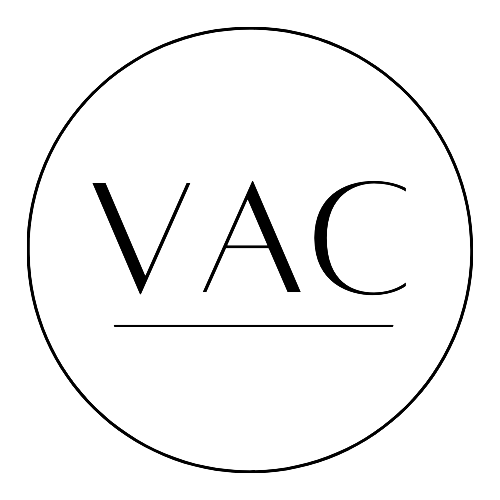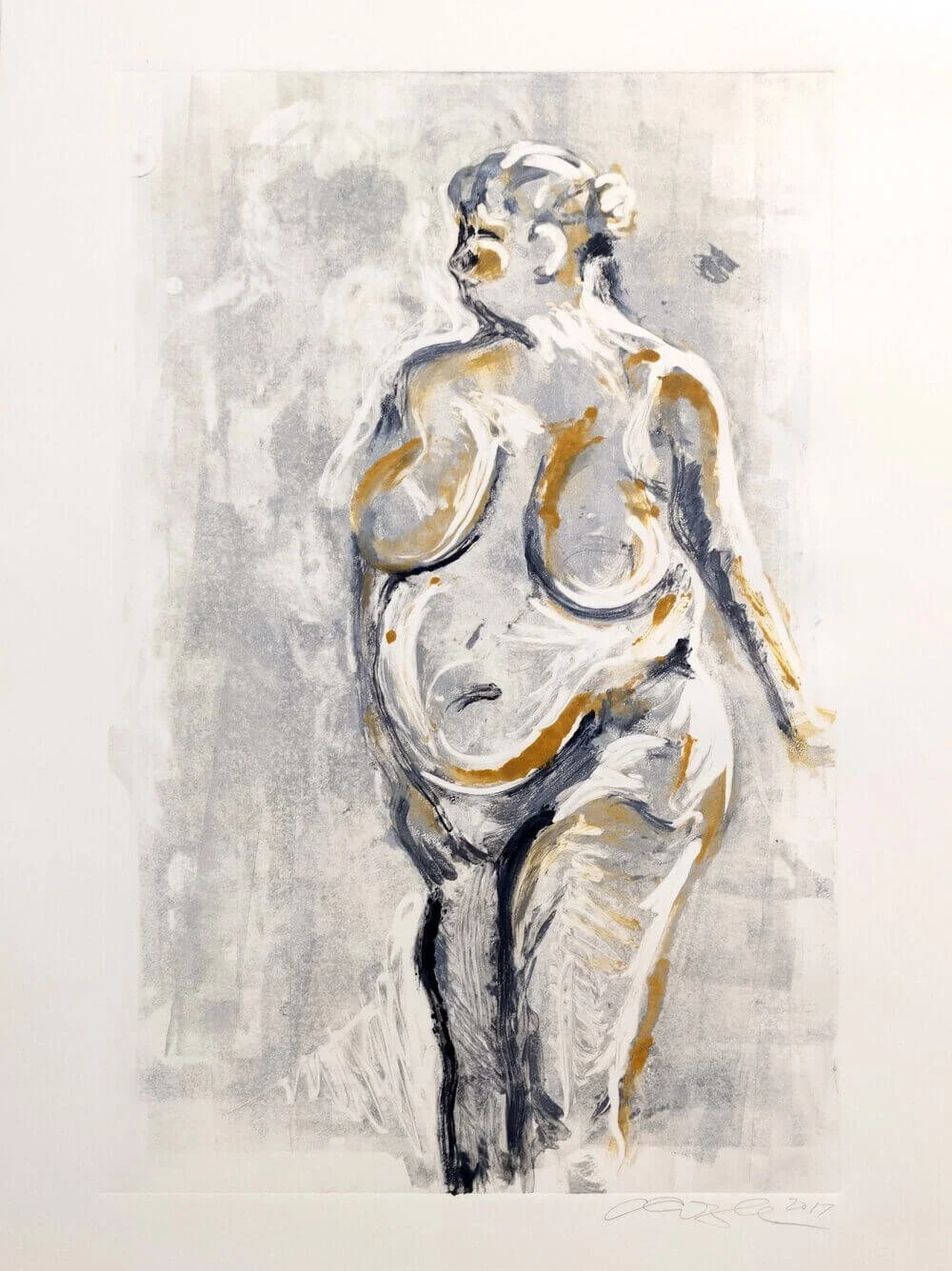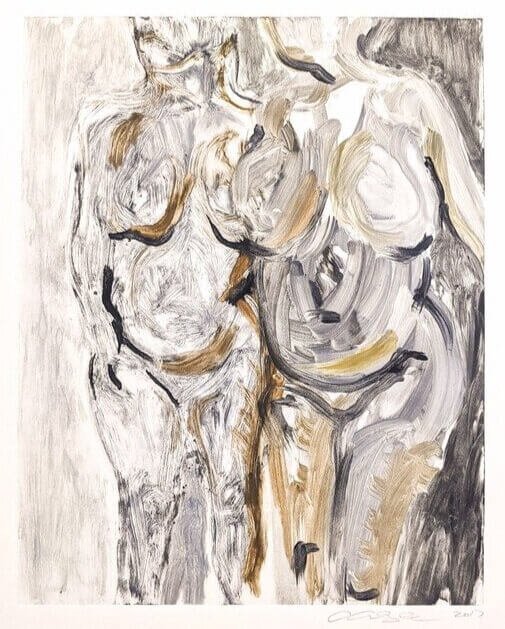Allison Belolan: Emotions & Environment
New York based artist Allison Belolan draws upon a wide range of life experiences to create her visually compelling works of art. Allison has recently shifted her focus to collage work; creating vibrant - yet incredibly delicate - hand-cut collages that are layered with color and pattern, communicating deep personal narratives that emanate from within. From teaching young artists, to rediscovering her own artistic voice, Allison’s work serves as a mediation on the connection between emotions and environment.
Tell me about your background and where your creative journey began.
My discovery of art happened way back in high school in Long Island, NY. The summer after my freshman year I took an art class at the local Waldorf School and fell in love. From then on I was the kid cutting class to hang out in the art room, which my high school art teachers seemed to support. They never turned me in anyway! Each summer I would take art classes, which eventually led me to study Printmaking at the Rhode Island School of Design, graduating in 2001. I gravitated towards Printmaking because I was drawn to the process and its physicality. At the time I wasn’t very sure what kind of artist I was, and it felt like there were so many possibilities with printmaking that I could do anything. I liked the focus on learning the tools and materials.
After graduating I worked as a jewelry sample maker at a costume jewelry company in Providence, RI, and worked my way up to Designer. Thinking that this was what I wanted to do, I went to FIT in NYC and got a degree in jewelry design and went on to work in many accessories and costume jewelry companies designing for brands like Betsey Johnson and Kenneth Cole. I soon discovered that the fashion industry was not a good fit for me. While I enjoyed the actual design work, the overall vibe was ultimately too unsupportive and demanding, and I was not happy.
In 2008 I returned to school again to get my master’s in Art Education at the School of Visual arts, also in NYC. After graduation from the intense 1-year program, I began teaching at PS 317, The Waterside Children’s Studio School in Rockaway Park, Queens. There I taught art to students in PreK-5th grade and absolutely loved it. In 2015 my family moved from Brooklyn to Westchester and I started teaching elementary art in the Bedford Central School District. Working with kids to make art is such a wonderful experience, and it is so very important! I loved getting to know each child as an artist and watching them grow in their confidence and abilities.
Where do you find inspiration for your work?
It often takes me a while to envision an idea, and I find that spending time in nature, even just outdoors in the backyard, helps my ideas to form. Many times I will notice something in the surrounding environment that sparks an idea or helps to solidify an idea. Ideation is a slow process for me. Often I will spend a lot of time thinking about and envisioning the many possibilities of an idea, waiting until it feels right to start putting it down on paper. A large part of that envisioning time is documentation. I photograph and collect constantly. Sometimes the images and objects I collect are directly related to an idea and can be seen as a reference in the final artworks, but not always.
How has your work shifted and evolved over time?
The biggest change has been shifting to focus on my own art full time. Since graduating from college in 2001 I was either designing for someone else or teaching art. The past two years have been filled with self-reflection while recovering from two surgeries and caring for my elementary-aged children during the pandemic. I realized that I needed to refocus my energy on doing work that is even more emotionally fulfilling and reciprocal in its fulfillment. Teaching, especially Art Education, is so important and rewarding, and I already miss the time in the art studio with kids. But it is also an emotionally and physically draining and taxing profession, and I am burnt out.
I’ve had to re-learn how to make my own art again. It really hasn’t been since college that I was making my own art, and re-learning how to do that has been challenging and rewarding. My journey back to my art over the past two years has been awesome. It started with playful mark making and experimentation with watercolors as I was recovering from surgery and regaining movement and strength in my wrists. Then I started doing some collage challenges with many of the online communities like Paris Collage Collective and Februllage. Having a prompt to jump-start my idea creation was very helpful, and I definitely recommend it to anyone. Creativity is like a muscle. It needs to be warmed up, especially if it’s been a while since you used it or are using it in a new way. After working with the prompts for a few weeks I was able to start moving away from them and working with my own ideas and explorations, which then led to the creating of smaller collections, and then to larger collections.
What does a typical day in the studio look like for you, and how has your art practice grown or changed?
As a mother of two elementary-aged children (currently 6 and 9), there is no typical day in the studio! Until recently with the pandemic, art making time was primarily stolen moments at the kitchen table while helping my kids with remote learning, or later at night after they went to bed. Now I work my art time around the kids’ schedules and ensure that I get some good dedicated and sacred studio time several days a week. I’ve been working with Terri Frohman, an art business coach based in Brooklyn, NY, and she taught me about block scheduling, which has been life-changing! Now, each week I schedule my non-negotiables 1st like child-care time, therapy, exercise, and studio time. Then I add in other tasks like admin work or gallery visits.
When I am actually in the studio creating the first thing I do is look at and reflect on the work from my last time in the studio. Then I usually need to warm up a bit with some sketching or playful experimenting and mark making before moving into new work or continuing work in progress. There is usually music playing and a cup of coffee on hand. Occasionally I will have a set task, like laying out a market booth or photographing artwork, but have learned that I need regular free creating time or I lose the flow. Every day around noon I take a 10-15 minute walk up to clear my head and work out any stress. Most of the studio creating time happens while the kids are at school or camp when I can work uninterrupted.
Which experiences have impacted your work as an artist?
Discovering the teaching philosophy of Teaching for Artistic Behavior (TAB) and the overlapping events of my arm surgeries and the Covid pandemic have definitely been the most impactful to me as an artist. These two-ish events have put me where I am today as an artist.
TAB is all about the student being the artist and the student taking ownership of their work in the art studio. Instead of teaching a specific project that students follow, the students are the ones who decide what art to make and with what materials. The focus of teaching shifts to helping students understand and discover how to be artists through the Studio Habits of Mind. You are teaching the students how to be an artist. Through this teaching practice, I strengthened my own skills as an artist, especially when it came to idea generation. As I was relearning how to be an art teacher, I was also re-learning how to be an artist.
Recently I realized that when I left college, I wasn’t entirely comfortable with or sure about how to be an artist. Working in the design field made sense to me because I was essentially given the assignment to follow as I had for a large chunk of my artistic training. I think that is also in part what drew me to study printmaking - a large focus was learning the process and how to use the tools and materials, not so much on developing our own ideas and bodies of work. My senior thesis was a real struggle, and looking back now that struggle was about not really knowing how to create a body of work or really work through and develop my own ideas. I wonder how my path would have been different if my experiences learning art in school and college had been different, more in line with the TAB philosophy.
In July of 2019, after almost two years of constant and increasing pain in my wrists, I had my first of two Ulnar shortening surgeries. My second surgery was about 8 months later, just before the Covid Pandemic hit. The long recovery times meant that I could not work. What was supposed to be a half-year leave turned into a full year. Then with caring for my family during the pandemic, the leave turned into two years. During my year and a half of recovery from the surgeries, I learned that I needed to start taking better care of myself, which was reinforced by the pandemic. For me, a big part of taking better care of myself means focusing my energy on endeavors that are meaningful and fulfilling without leaving me feeling burntout. Teaching no longer met those criteria for me, and as I embraced my own art-making more and more I made the decision to shift my focus, leave teaching, and be an artist full time.
How has Instagram impacted your art career?
Instagram is a strange beast. On one hand, my work is being seen and I am making connections with people I may never have met without it. I love the connections I have made that have led to incredible experiences, opportunities, and relationships with people and organizations like you here at Visionary Art Collective, Dear Artists Circle, and All SHE Makes. Instagram has definitely opened the art world up A LOT and has shown that there are many ways to be an artist. It’s a nice ego boost to see the likes and comments!
On the other hand, it distorts reality and I have to work hard at remembering that social media is not the entire story and it is not the end-all-be-all for my artistic career. It is also such a vast place that sometimes I feel like I am shouting into the void or preaching to the choir.
Ultimately, what matters to me is making a personal connection with my collectors. Instagram is great for getting my work out there and finding places and people to connect with and making that initial connection. It’s a great starting point, one of many tools needed to keep my art career going. I’m hoping to go beyond that.
What are your future goals and aspirations?
Focusing on my own art is still very new to me, so I am open to trying many things until I figure out what works best for me. I am looking to build and maintain an artistic practice and business that allows me to have meaningful and fulfilling relationships in all aspects from creating to my collectors. It is also important that I have a more balanced life with time for myself and my family, which is one of the reasons I left full-time teaching. Figuring out what that looks like may take some time, but I am on my way!
When I first started shifting to working full time as an artist, I felt like I had to do everything and be everything, apply to every open call and opportunity. I soon realized that was not sustainable or a good idea. I’m learning to narrow down my focus and carve out my own space that feels good and works for me. That looks like finding my people on social media, learning which in-person markets are the best fit for me, and finding galleries and art advisors to connect with alongside building my own personal network of collectors and supporters. Part of that is learning when to say “no, that’s not for me,” which is getting easier and easier.
This summer I am concentrating on pushing my artwork and continuing to grow by experimenting with different surfaces and going larger, and building a new body of work inspired by my daily travels. I’m very excited about it! I’ll be at the Garrison Art Center’s 52nd Riverside Crafts Fair in Garrison Landing, NY August 21st and 22nd, so come say hello!
Follow Allison in Instagram: allisonbelolanart
Website: www.allisonbelolanart.com










